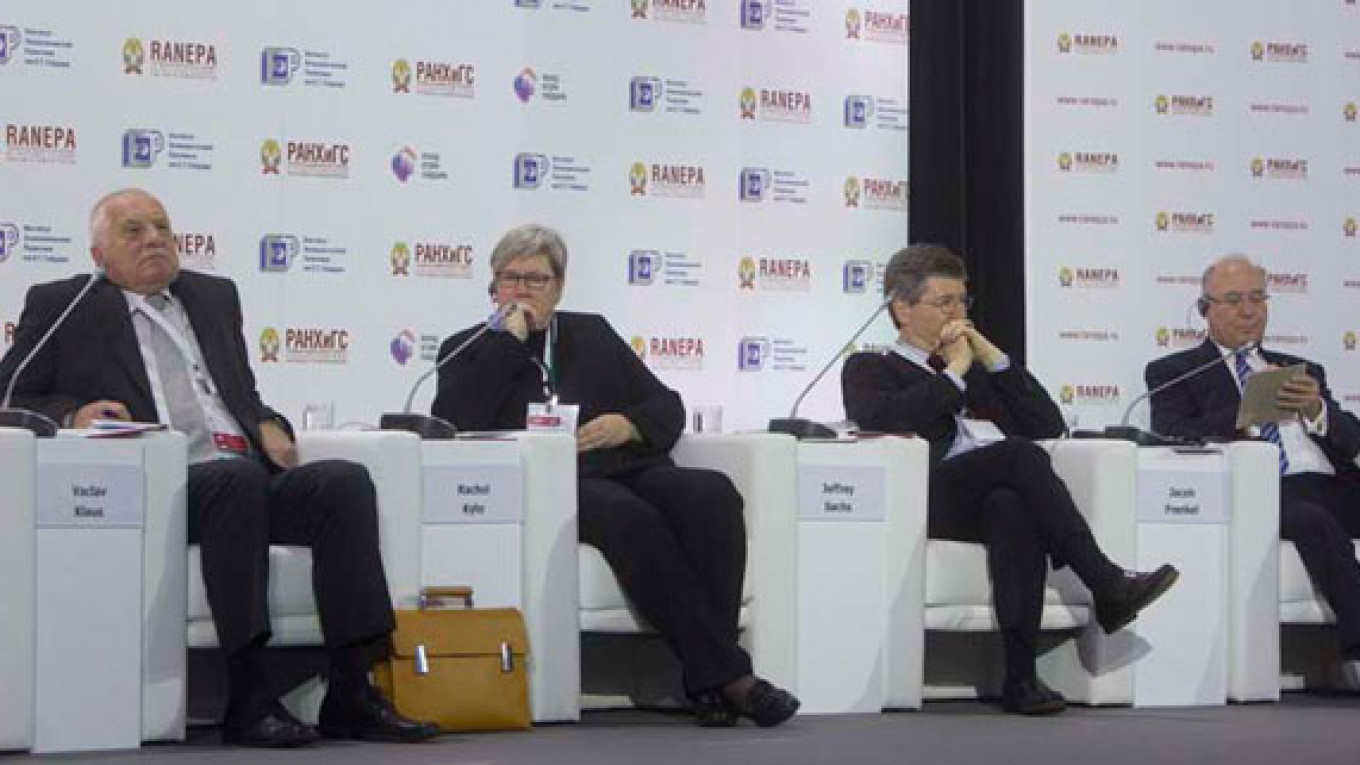As a major exporter of fossil fuels, Russia may seem an unlikely candidate for global environmental champion, but macro-economic experts believe the country can play a vital role in reducing carbon emissions and the impact of climate change.
This uncommon view of the country's potential to support ecological improvement was voiced during a panel discussion at the Gaidar Forum taking place in Moscow this week, which is organized and hosted by the Presidential Academy of National Economy and Public Administration.
It is precisely thanks to its importance in the natural resources sector that Russia can shift energy use in the right direction, said Jeffrey Sachs, economist and director at Columbia University's Earth Institute.
"If Russia can sell natural gas plentifully, if it can sell nuclear power plentifully, and if it will keep its coal under the ground and encourage the U.S. and China to keep their coal under the ground, we actually have a path to climate stabilization," Sachs said.
Coal is the worst fossil fuel in terms of environmental impact, while natural gas offers a cleaner alternative, releasing less carbon than either coal or oil. This will be vital in the transition to a sustainable energy economy over the next 40 years, he added.
Sachs particularly urged Russia to expand its exports of natural gas to China, by far the world's largest consumer of coal but increasingly a destination of Russian oil and gas exports.
Russia is already a leader in certain areas of climate protection, including forest fire response and successful reduction of gas flaring in some regions of the country, said Rachel Kyte, formerly vice president for sustainable development at the World Bank.
But there are other areas where Russia must lead — specifically, in fighting to protect the circumpolar permafrost, about 70 percent of which is located in Russia, she said.
The release of even a small part of the methane contained in the permafrost threatens to undo any progress made in the struggle against climate change, Kyte said.
The melting of the permafrost poses a significant danger to the population living in the area.
Collapsing ground has already damaged buildings and infrastructure in the city of Yakutsk, and the Emergency Situations Ministry estimated in 2010 that a quarter of housing in the Far North could be wiped out by 2030, Kyte said.
Russia has already seen substantial temperature increases — from 2 to 3 degrees Celsius over the last 150 years, according to the Russian national hydrometerological service.
Over that same period, the increase in temperate worldwide averaged between 0.7 and 0.8 degrees Celsius.
While climbing temperatures could seem a boon to Russians weary of long, cold winters, "the adverse effects include: windstorms, heat waves, floods, forest fires, and melting of the permafrost," Kyte said.
Contact the author at [email protected]
A Message from The Moscow Times:
Dear readers,
We are facing unprecedented challenges. Russia's Prosecutor General's Office has designated The Moscow Times as an "undesirable" organization, criminalizing our work and putting our staff at risk of prosecution. This follows our earlier unjust labeling as a "foreign agent."
These actions are direct attempts to silence independent journalism in Russia. The authorities claim our work "discredits the decisions of the Russian leadership." We see things differently: we strive to provide accurate, unbiased reporting on Russia.
We, the journalists of The Moscow Times, refuse to be silenced. But to continue our work, we need your help.
Your support, no matter how small, makes a world of difference. If you can, please support us monthly starting from just $2. It's quick to set up, and every contribution makes a significant impact.
By supporting The Moscow Times, you're defending open, independent journalism in the face of repression. Thank you for standing with us.
Remind me later.






